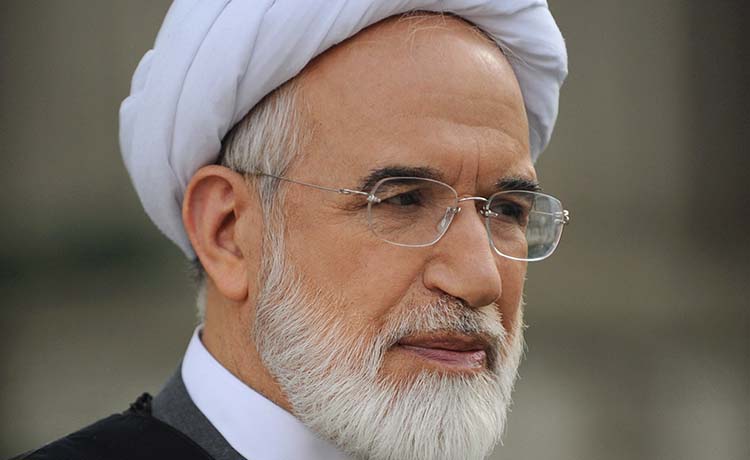Detained Political Leader Mehdi Karroubi on Life-Threatening Hunger Strike

August 16, 2017—The Iranian judiciary must immediately release ailing political leaders Mehdi Karroubi, who is currently on hunger strike, Mir Hossein Mousavi and Zahra Rahnavard, said the Center for Human Rights in Iran (CHRI).
Karroubi (79), who along with Mousavi (75) and Rahnavard (71) has been under house arrest, without public charge or trial since February 2011, embarked on a hunger strike on August 16, 2017, his wife Fatemeh Karroubi told Saham News.
“Karroubi’s life is in danger and the state, which has detained him without trial, is responsible for whatever happens to him while he is in its custody,” said CHRI’s executive director Hadi Ghaemi.
“Karroubi is still demanding his first trial more than six years after he was imprisoned in his home,” added Ghaemi. “The judiciary must immediately tend to this emergency medical situation and free these political leaders who have been imprisoned for peacefully expressing their opinion.”
Recently released from hospitalization, Karroubi is demanding security agents leave his home in northern Tehran and that he be granted a public trial—a demand he has been making for more than six years.
“He has had two angiography procedures in recent days and he’s not in good physical condition at all,” Karroubi’s son Mohammad Taghi Karroubi told CHRI. “But against doctors’ advice, he has been forced to start a hunger strike for his most basic rights.”
“We are extremely worried for him,” he added. “Going on a dry hunger strike is very dangerous for anyone at his age.”
Karroubi, Mousavi and Rahnavard were put under house arrest on February 13, 2011 for peacefully disputing the results of Iran’s 2009 presidential election, which brought hardliner Mahmoud Ahmadinejad a second term in office.
The Green Movement arose out of the peaceful protests—violently repressed by the state—that swept Iran after the election, and are still a highly sensitive subject in Iran, referred to by hardliners as “the sedition.”
Ending the house arrests was one of President Hassan Rouhani’s top pledges during his 2013 election campaign.
Crowds of supporters chanted for the trios’ freedom during many of his campaign rallies in 2013 and again in 2017.
However, after his re-election on May 19, 2017, Rouhani adopted a more cautious line and suggested that a solution depends on cooperation from other branches of state.
Hardline officials have stated that the reason the judiciary is holding the trio under house arrest is because they would have received a much harsher sentence for leading the peaceful protests if they were tried in the Iranian court system.
The Iranian judiciary should immediately end its routine practice of detaining individuals without charge.
“Many individuals are held in this legal purgatory for extended periods in Iran, but six years of imprisonment without charge is long even by Tehran’s standards,” said Ghaemi.





